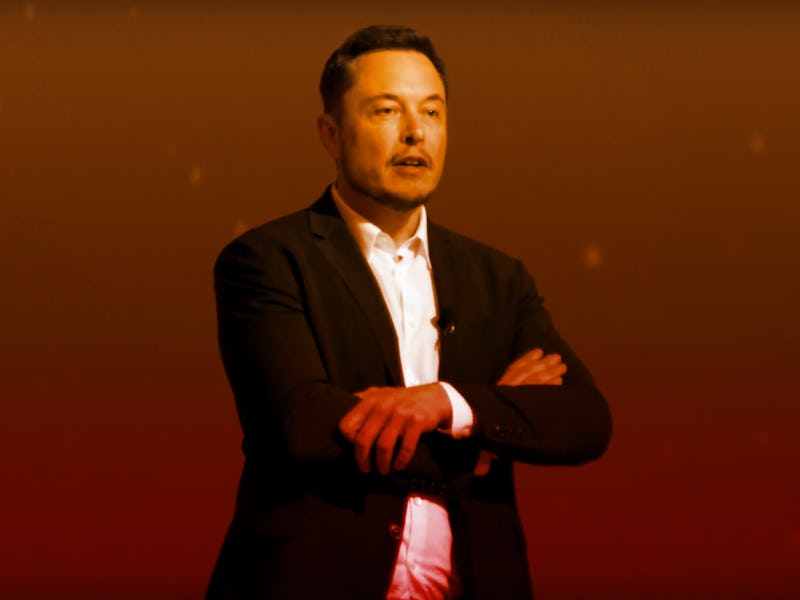Humanity needs to become a multiplanetary species to “preserve the light of consciousness,” Elon Musk told his Twitter followers on Monday. The SpaceX CEO’s company is developing a rocket that can travel to Mars and refuel at specially-built stations to continue its journey, but while the “BFR” project sounds like a cool science-advancing feat, Musk’s comments suggest he sees a deeper meaning in interplanetary expansion.
Musk was responding to a Universal Science article on a study about the Fermi paradox released by the University of Oxford’s Future of Humanity Institute. The paradox concerns the fact that there’s a high probability that there is more intelligent life in the universe than just us, yet there seems to be no evidence of its existence. The researchers looked at the Drake equation that aims to determine the number of extraterrestrial civilizations that we could theoretically establish communication with. The team considered the possible values that could fit into the equation, looking at the possible extremities, and determined the probability that humanity is alone in the galaxy is around 30 percent.
“It is unknown whether we are the only civilization currently alive in the observable universe, but any chance that we are is added impetus for extending life beyond Earth,” Musk told his 22 million followers, later writing that “we are essentially a steward of life & duty-bound imo to ensure its continuance.” Musk also noted that “it would be amazing to encounter an alien civilization, provided it is not their invasion fleet!” in response to a comment about the “Goldilocks zone” around stars that could help planets theoretically support life similar to ours.
Musk has spoken before about how plans to move humanity beyond Earth. He founded SpaceX at the turn of the millennium, after growing depressed about the state of space exploration. SpaceX’s reason for existence is to inspire a second space race to Mars and kickstart a new generation of scientific discovery. However, Mars is just a starting point — in his speech at the International Astronautical Congress in Adelaide, Australia last September, Musk detailed a methane refueling system for the BFR that humans could set up on Mars, as part of his speech entitled “making life multiplanetary.”
SpaceX has an aggressive timeline to get to Mars. The first two BFR ships are set to deliver supplies as early as 2022, with four more ships, two of which will carry humans, will set a course for the red planet two years later.
The plan could help humanity carry the beacon of consciousness even further into the stars.
